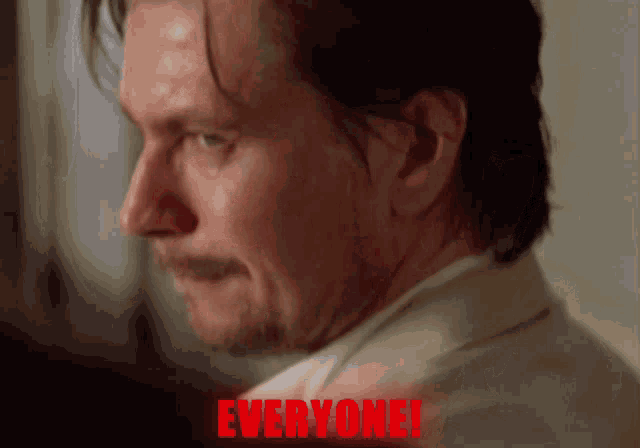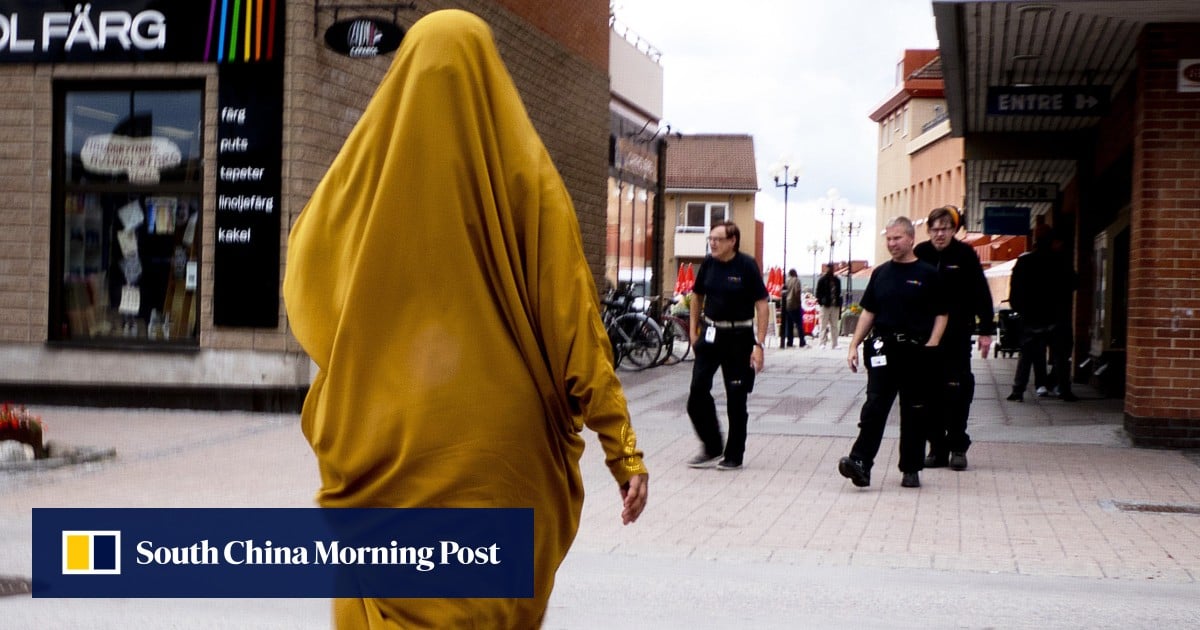- 672 Posts
- 281 Comments

 2·20 hours ago
2·20 hours agoNot mad at all. I’m just saying that I’ll avoid posting images/memes going forward. I’ll still keep posting the links I find interesting and somewhat relevant to the Europe community.
I appreciate the work you and the mod team is doing.

 2·1 day ago
2·1 day agoAlright, no more images. Got it.

 20·1 day ago
20·1 day ago

 33·1 day ago
33·1 day agoBet you’re fun at parties.
Posted archive link above.

 2·4 days ago
2·4 days agoVery much so, but I feel like most people didn’t get past the headline. It also highlights how the UK, while free to set their own rules in theory, are still bound by the reality that the EU exists and makes the rules in practice.

 122·5 days ago
122·5 days agoI quite like the trend of tethering bottles to their caps, mostly because at my particular stage of pregnancy I have become extremely eager to avoid picking up dropped items. But this positive reaction is far from universal. (“The actual worst thing about modern Britain,” according to one disgruntled drinker.) It didn’t take much work to discover the culprit: EU regulation. Further investigation revealed plenty of juicy details.
Since July 3, all drinks bottles of up to three litres sold in the EU have had to come with caps attached. In theory, Brexit spared Britain from this diktat. In practice, it doesn’t make sense for multinationals to supply different designs within the European market, so Brits get the new caps too. Doesn’t freedom taste sweet?
The basic problem regulators were trying to solve is that whereas discarding a plastic lid on a beach doesn’t cost the person littering, the planet still pays a price. The European Commission estimated that plastic caps and lids represented around 13 per cent of plastic marine litter caught in the nets of fishing vessels between 2011 and 2017.
There have been successful deposit return schemes, which internalise the externality by giving consumers financial incentives to return their rubbish. But retailers squealed to the Commission that a centrally-designed version could have “major economic and operational impacts”. Regulation it was.
When the European Commission unveiled its proposals, drinks makers weren’t exactly fizzing with delight. A report commissioned by Unesda, the European soft drinks association, estimated that the cost of the transition, including all the new equipment required, could be as much as three to nine per cent of the industry’s annual turnover. The new caps might even require more plastic than the old kind.
Still, the regulatory juggernaut trundled on, and the industry got on board. There were squabbles, for example some milk producers argued that because their caps did not have to withstand the pressure of a fizzy drink, they should get their own standard. (They did not get their way.) But ultimately regulators and industry managed to develop new standards in a little over two years.
The July 3 deadline should not have taken anyone by surprise. But although some producers were ready well in advance, others held back so that they could see the response to the first few solutions on the market. Meanwhile some drink makers who had been producing caps in-house decided that they didn’t fancy navigating the new standards themselves, and looked to outsource.
That meant that the months leading up to July saw a rush of demand for new caps at the same time as a huge wrench to supply. Inevitably, there were supply chain bottle necks, which handed more power to cap producers relative to brand-owners. (Over time as more supply comes online that should shift back.)
The common deadline generated headaches, but also some refreshing opportunities. Before the change, innovation was tricky. Brand-owners shopped between producers of standardised bottles and caps to nab the lowest possible price. Demanding an innovation unilaterally would have been off-puttingly expensive, partly because it would have tied them to a particular cap producer.
Once everyone had to change their processes, that old equilibrium broke down. Brian Lodge of the British Plastics Federation says that manufacturers took the opportunity to shorten both the bottle caps and their necks, reducing the amount of plastic in use. Sarah De La Mare of the plastic packaging manufacturer Berry Global Inc says that “the change brought an opportunity to suppliers to optimise their product portfolio”. Some producers, in other words, tried to turn lemons into lemonade.
For everyone irritatedly tugging a new cap off its tethers then smugly tossing it into the recycling bin . . . don’t. Once at a recycling centre, plastic bottles are hurled around in what is in effect a large sieve, with holes to filter out any rubble. When unattached lids fall through those holes, they are usually either burnt or sent to landfill. But if they are physically attached, the lids can be separated after the bottles are ground down and recycled into something else.
Mario Draghi’s recent report on European competitiveness makes this week a fashionable time to lament Brussels’ eagerness to regulate. While this particular regulation seems defensible, part of the problem may be that in isolation this is always the case. At least the drinks industry has moved on, with companies touting the new caps as part of sustainability commitments. I predict that before too long, consumers will move on too.

 20·6 days ago
20·6 days ago“Something has to be done, this is something so it has to be done” - SD, probably

 2·6 days ago
2·6 days agoBit embarrassing that it’s Ylva Johansson from Sweden who proposed this. I thought we knew better.

 2·7 days ago
2·7 days agoWhy is it a failure of the EU?

 1·7 days ago
1·7 days agoCNBC to blame for that headline I’m afraid.

 1·9 days ago
1·9 days agoIf this link is too be believed it looks like talking about the misinformation while also adding a correction is the way to go.
https://www.apa.org/topics/journalism-facts/misinformation-recommendations
I still think that talking about it is better than trying to ignore or silencing.
Anecdotally we’ve been trying to ignore and silence our Swedish idiot party, the Sweden Democrats, for years, and now they are the second (third?) largest party here. Only now when the journalists start asking the difficult questions can we see a slight reduction in their poll numbers.

 39·9 days ago
39·9 days agoWhen has it ever helped to try to silence populists? They just play their victim card and get even more popular.
Call them out. Ask tough questions. Have them explain in detail what they’re proposing and the costs and benefits of it. It does demand a lot from the journalists though.

 162·14 days ago
162·14 days agoI think it’s newsworthy in the sense that this is how the wealthy view the world, and it shows the disconnect between the haves and the have-not.
Absolutely agree about improving the social situation for a lot of people who are struggling, but I also think there’s something else. I don’t know what. Healthcare is free, dental care is free, education is free and you get paid to attend school. Second generation migrants have opportunities their parents likely didn’t, and still they get recruited into gangs and kill or get killed.
I don’t know what the real problem is, nor how to solve it. I just don’t think either the left (fix the social situation and the crime will stop) or the right (stop migration and the crime will stop) is correct. Or maybe they both are, but in a limited way? Maybe it’s something else entirely?

 92·24 days ago
92·24 days agoYour work is appreciated.

 1·24 days ago
1·24 days agoRafał Brzoska, founder of InPost and head of the Polish Entrepreneurs’ Council Rafał Brzoska, founder of InPost and head of the [+]Polish Entrepreneurs’ Council, at a press conference in Warsaw, Poland on May 30, 2022. (Photo by Mateusz Wlodarczyk/NurPhoto via Getty Images) NurPhoto via Getty Images Polish businesses should play a more active role in building defense capabilities to stave off potential Russian aggression, according to Rafał Brzoska, head of the Polish Entrepreneurs’ Council and founder of InPost, the country’s largest courier service company.
Brzoska said private companies could organize armed units “faster, cheaper, and more efficiently” than public authorities, and that their geographical dispersion would ensure they could rapidly respond to threats across the country.
With appropriate regulations and incentives, such as tax breaks, businesses could equip employees with weapons, bulletproof vests, and uniforms, in an approach modelled on the Finnish system, where trained citizens can retrieve weapons from local armories workplaces in case of military threat.
Brzoska said InPost would distribute a survey among its 15,000 employees to find out how many of them already own guns and who would be interested in applying for permits and participating in training. He added that similar surveys would be conducted in several thousand companies associated with employer organizations.
According to media reports, the Ministry of Defence welcomed the proposals. However, it did not respond to a request for comment by publication time.
In late June, the heads of three main entrepreneur associations, which include 80% of the largest Polish businesses—both private and state-majority-owned firms—called on the Ministry of Defense to work together to develop solutions that would strengthen the country’s defense potential.
The signatories of the appeal advocated the creation of a support fund, co-financed by the private sector and the state, for companies operating along Poland’s fraught border with Belarus. They suggested introducing insurance programs for the businesses, as they may might be the first to face direct threats in the event of a military escalation.
The business leaders noted that the existing regulations supporting companies that employ reservists are insufficient and proposed implementing a mechanism for awarding them additional points in public tenders, among other measures.
They also suggested considering a range of tax incentives for various defense-related expenditures, such as the purchase of weapons, defensive equipment, and training.
The letter included calls for enhanced cybersecurity, increasing trade with trusted allies, and maintaining a united front on sanctions against Russia.
The appeal was part of a broader European initiative that included business representatives from Scandinavian, Baltic, and Central and Eastern European countries.
Poland has been one of NATO’s and Ukraine’s key allies in confronting Russian aggression. The country has supplied Kyiv with 44 military aid packages since the start of Russia’s full-scale invasion, totaling over $4 billion, without restrictions on its use.
In May, Warsaw announced plans to form a volunteer unit of draft-age Ukrainians living in Poland, to be deployed in their home country. Over 23,000 Ukrainian soldiers have been trained in Poland since February 2022.
The amount of gang violence in Sweden has exploded in the last few years, with shootings and bombings.
Overall crime is down, but the risk of being shot or blown up is higher in Sweden compared to a few years ago.
Sadly most victims of this violence are young men with roots from outside of Europe, many second generation immigrants, which plays right into the hands of the far right.
I want the violence to stop, I just don’t think the far right have the solution, however give it a few more years and people will be ready to try anything, even fascism. I think.
Edit: Fixed a damn autocorrect.













Because the UK chose to not be a part of the single market anymore, so goods they UK wish to export into the EU needs to be treated like any other 3rd country goods with checks and certifications to prove that they are good enough, but with NI still part of the single market as well as the UK, this label was the best solution they could come up with to avoid having to check everything going from the UK to NI. Without the label trade friction will be lower between Ireland and NI, which will please republicans, but not unionists I think.